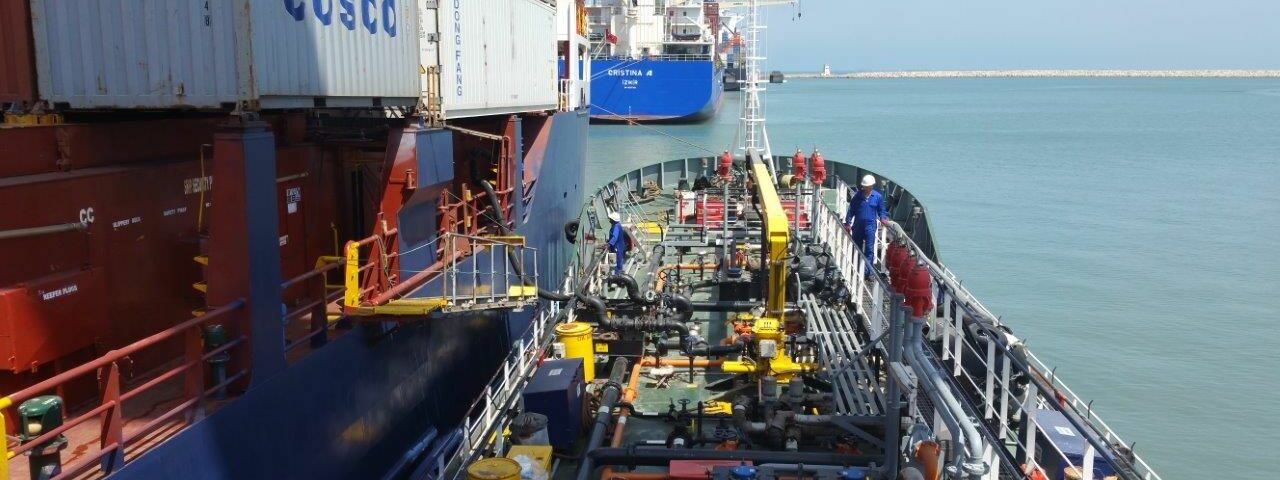When a car fuels at a gas station and "neglects" to pay, it is a debt of dozens of dollars at most and it is relatively easy to locate the vehicle owner and collect the money. In contrast, when a ship is refueling, the cost may reach hundreds of thousands of dollars, the payment is not made at the spot and when the ship does not pay, it is sometimes necessary to carry out collection procedures on the other side of the globe. The strongest means of collection is the arrest of the ship when it anchors.
During the time of the British Mandate in Israel (1920-1948), similar to the conduct of the British Empire in the British colonies at such time, English admiralty law was applied, including the Colonial Courts of Admiralty Act 1890, Admiralty Court Act, 1840, Admiralty Court Act, 1861 and applicable case law. In 1960, the Maritime Law of 1960 was enacted in Israel, which anchored in law the concept of maritime lien and established a broad list of cases in which it would apply.
In certain circumstances, a maritime lien entitles a creditor to recover from the ship - that is, the right to arrest the ship, sell it and to collect the debt from the consideration. Israeli law acknowledges a maritime lien in the event of debts of the ship's owners, crew, or anyone acting on its behalf. A claim may arise from contractual liability of the ship's owners (e,g,, payment for bunkering services), debts to the port, debts to employees, compensation to third parties, and more. The maritime lien is attached to the ship even with the exchange of owners, even if the purchaser is unaware of the existence of a debt.
The remedy of a ship arrest is a very efficient one, mainly because of the great damage caused to the shipowner during the arrest, when the ship can not operate and generate income and certainly if the ship is sold. Thus, Israeli Supreme Court recently held that it is not possible to arrest a ship in respect of debts of a lessee thereof, but only for debts of the shipowner, and Israeli Maritime Court has already held in the past that a maritime lien exists only for creditors with direct relationship with the ship.
The Brussel International Convention on the Arrest of Sea Going Ships (1952) a right to arrest a “sister ship,” as was also agreed in the Geneva International Convention On The Arrest Of Ships (1999). However, Israel is not a party to these treaties. In a case decided several months ago at the Haifa Maritime Court, a Turkish ship that sank off the coast of Sicily with a bunkering debt of several hundred thousand dollars had a ship of the same ownership ("sister ship") which docked in Israel. The sister ship arrest was sought for the debts of its sister, but the Court held that Israeli law does not recognize the arrest of a sister ship and the ship was released.
The Israeli Maritime Court is empowered to order the arrest a ship once it is within the jurisdiction of Israel, even in lack of any connection to Israel of the ship, its owner, or the dispute. In modern era, a computer can easily point out where a commercial ship is anchored and it is thus advisable for maritime bunkering suppliers or other creditors, with an indebted ship anchoring in Israel, to urgently move the Maritime Courts in Israel, with the assistance of an Israeli maritime attorneys, and request the arrest of the ship before it leaves the Israeli coast to an unknown destination.
• For full disclosure, it should be noted that Afik & Co. represents the Cypriot companies Petronav Ship Management Ltd. and Island Petroleum Limited, which holds the concession for maritime bunkering at the Haifa Port.
Published in Afik News 245 06.12.2017

